Category: HVAC
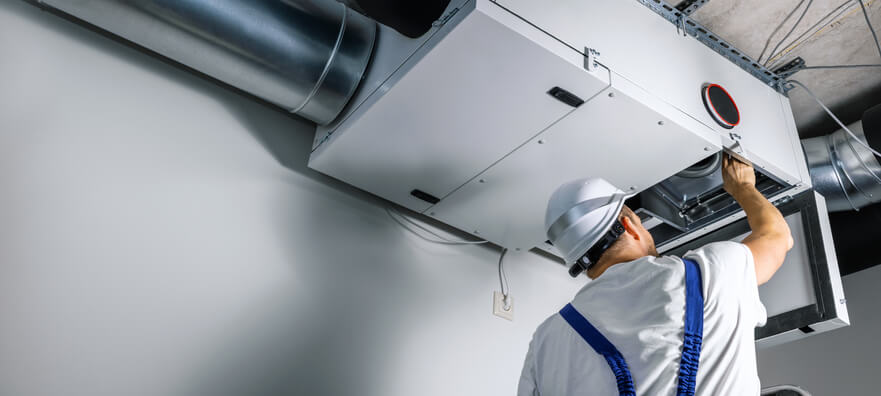
If you’re thinking about pursuing a career in the HVAC (Heating, Ventilation, and Air Conditioning) industry, you’re on track to enter a thriving field that offers a blend of hands-on work and technical problem-solving. But where do you start? How do you gain the necessary experience and exposure to decide if this is the right field for you? One often overlooked but highly beneficial position to consider is that of an HVAC Maintenance Assistant or HVAC Helper.
In this blog post, we’ll dive deep into what an HVAC Maintenance Assistant does, the benefits of starting in this position, and why it could be the ideal first step for aspiring HVAC professionals after your HVAC training.
What Is an HVAC Maintenance Assistant?
An HVAC Maintenance Assistant, often referred to as an HVAC Helper, is an entry-level position in the HVAC industry. As the name suggests, the primary role of this position is to assist HVAC technicians in their daily tasks. This can involve anything from handling tools, preparing work areas, and performing basic maintenance, to assisting with installations and repairs.
HVAC helpers focus on heating, cooling, and ventilation systems, assisting with tasks like inspecting equipment, installing humidifiers, preparing tools, cleaning air ducts, and maintaining company vehicles. They also handle the general upkeep of property interiors and exteriors. They ensure preventative maintenance is followed and assist with basic repairs across HVAC/R, plumbing, and electrical systems. Their duties also cover equipment repair, basic carpentry, furniture moving, and area maintenance like cleaning and lawn care. With the rise of clean energy systems, both roles need familiarity with electricity-based HVAC/R mechanics, such as heat pumps.
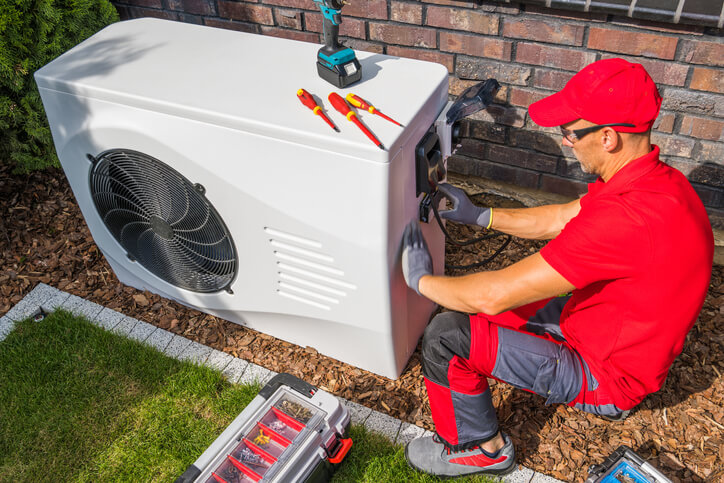
Why Consider Starting As An HVAC Maintenance Assistant?
Before committing to formal HVAC technician training or certifications, becoming an HVAC Helper offers a taste of the industry, granting invaluable first-hand experience of daily operations. This can be instrumental in gauging if the profession aligns with your aspirations. (this is generally not allowed. Most situations in hvac require a helper/assistant to already have the G3 certification)
Another notable advantage of beginning as an assistant is the “learn while you earn” model, a contrast to professions demanding early educational investments. This position also brings the opportunity for mentorship; by working alongside seasoned HVAC technicians, you gain access to a reservoir of knowledge and insights not always encapsulated in official training. Moreover, starting as an HVAC Helper is merely a foundation; with accrued experience and further training, there’s potential to ascend to more advanced roles, ranging from technician to management positions.
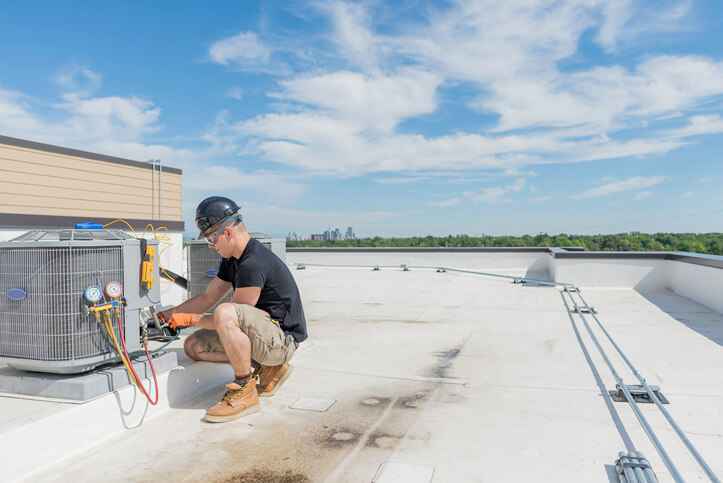
How to Become An HVAC Maintenance Assistant
HVAC helpers and maintenance assistants typically possess a high school diploma or GED, although formal education might not be a requirement for some. Previous experience is not usually mandatory, as workers often undergo a few weeks of on-the-job training to develop proficiency in their respective tasks.
(again this can be a bit misleading as a certificate is usually required to work on hvac systems and appliances.)
However, having vocational training in a relevant trade, understanding HVAC operations (particularly in energy-efficient technologies like heat pumps), or holding one to two years experience can give job seekers an edge, making them more appealing to employers compared to candidates without such qualifications.
Those aspiring to advance from these entry-level roles to become technicians or installers may consider applying for apprenticeship programs, pursuing vocational training, obtaining an HVAC technician diploma, or enrolling in courses provided by HVAC/R industry bodies, manufacturers, or distributors, with a focus on equipment and components used in clean energy systems.
Are you looking for a world-class HVAC technician college?
Contact NATS for more information.
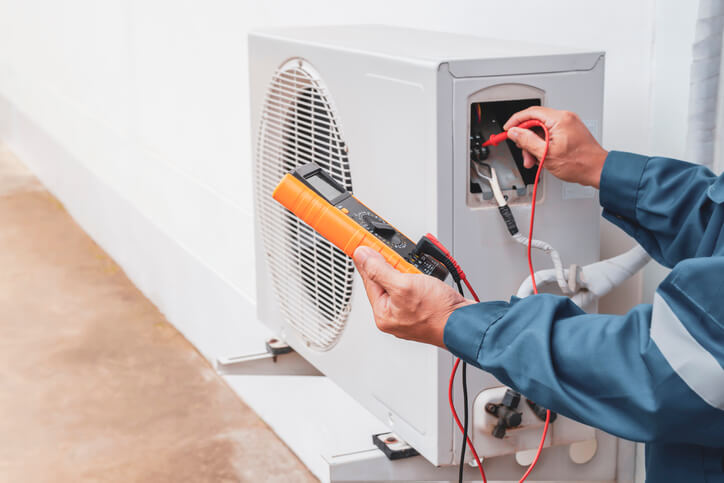
A technician is only as good as his tools, so the old saying goes. While an HVAC technician career is notable for its low entry barrier, quality tools are an indispensable expense for budding technicians. As a recent graduate entering the workforce and industry, you may need to manage your budget efficiently, particularly at the earliest stages of your career. One of the first steps in establishing yourself as a capable HVAC professional is assembling a toolkit that equips you for success without breaking the bank. This blog will explore how HVAC technician grads can build a comprehensive toolkit on a budget.
Prioritize Essential Tools While Exploring Budget-Friendly Brands
Start by identifying the essential tools required for your day-to-day tasks. A reliable set of basics includes a quality multimeter, screwdrivers, pliers, wire strippers, and a utility knife. These tools are the backbone of any HVAC technician’s arsenal and should be your first investment. Seek out affordable yet durable options to strike the right balance between quality and cost.
Several reputable brands offer high-quality tools at reasonable prices. Research and compare different brands to find the best value for your money. While investing in durable tools is essential, budget-friendly alternatives often perform just as well as their pricier counterparts.

Take Advantage of Starter Kits and Consider Second-Hand Options
Some manufacturers offer starter kits specifically designed for entry-level technicians. These kits often include various essential tools at a discounted price compared to purchasing each item individually. While you may eventually need to supplement your toolkit, these starter kits can be an excellent way to start without breaking the bank.
After your HVAC technician training, consider second-hand or refurbished tools in your toolkit quest. Seasoned technicians frequently upgrade their toolkits, allowing you to secure dependable tools at a significantly lower cost. Explore online marketplaces and local tool swaps, or tap into your professional network to unearth potential deals. In addition to stretching your budget, this approach will allow you to access quality tools with a proven track record, serving you well at the beginning of your HVAC career.
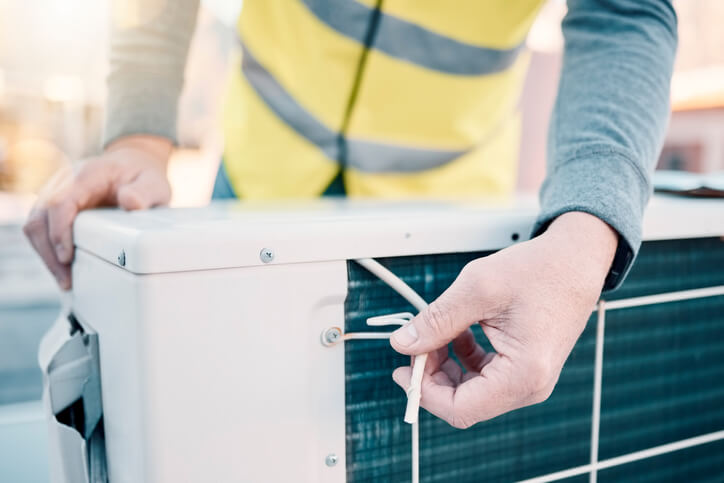
Build Gradually During Your HVAC Technician Training While Investing in Versatile Tools
When assembling a budget-friendly toolkit, focus on versatile tools that perform multiple functions. Opting for quality items like an adjustable wrench or a multi-bit screwdriver saves money and conserves valuable space in your toolkit. Choosing tools that can handle various tasks enhances efficiency and ensures you’re well-prepared for the diverse challenges you may encounter in your HVAC technician career.
Ultimately, assembling a toolkit is an ongoing process. Begin with fundamental tools and incrementally expand your collection as your budget permits. The advantage of this strategy is that it alleviates financial strain and allows you to determine which tools are essential for your specific job responsibilities. With this approach, you can tailor your toolkit to meet your evolving HVAC technician needs, ensuring a cost-effective and well-curated set of tools in the long run.
Interested in obtaining your HVAC technician diploma?
Contact NATS for more information.
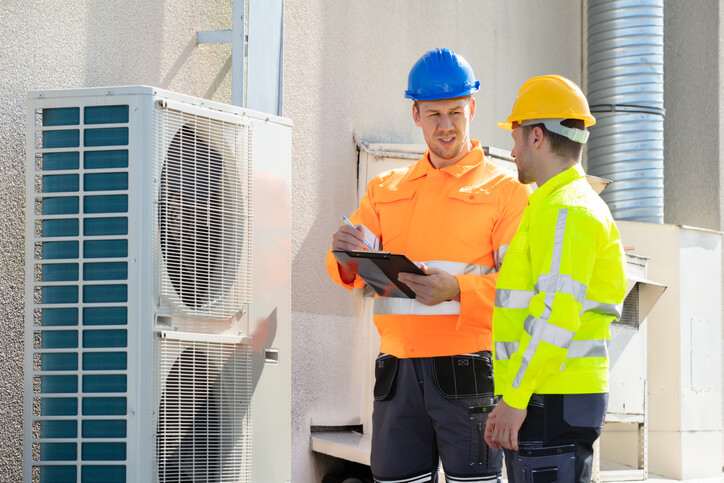
The journey to becoming a full-fledged HVAC Technician will require you to pass your Gas Technician exams. These exams provide a route to proving your professional competence and qualification in diploma and meeting key licensing requirements that prepare you for a lifetime of practice.
It is mostly by making the mark in these exams that you can give your career a big push, even after all the years of HVAC technician training and work experience. This is why it is important to prepare adequately for your Gas Technician exams. Here, we have provided a few crucial tips to help you prepare for and ace these exams. They are discussed below:
Create a Study Plan and Schedule and Stick to it Throughout HVAC Technician Training
To prepare adequately for your gas technician exams, you need to create a plan that’ll account for your study, practice, and other relevant exam conditions. You must try to settle on a study schedule and a comfortable study location and method that’ll give you enough room to cover sufficient grounds as well as a consistent process to fall back on. You may plan for a physical group study of your peers if you are comfortable with it or check into virtual forums.

Gather relevant study materials, practice resources, gas codes, and other resources that’ll help your course. Set out times for reviewing your learning materials from your HVAC technician training and taking on previous exam questions. And after setting up the schedule, make a conscious effort to follow through on it.
Extensively Review Your Training Materials
The notes, textbooks, and other learning resources from your HVAC Technician courses should provide a handy study guide for exam purposes. So you must go over these materials and get the entire gist of what they contain to prepare you for your upcoming exams. Get a solid grasp of the key concepts behind important topics and research supporting data to break them down into their base form.
You should find notes on such topics as piping systems, safe practices, local codes and regulations, gas heating basics, and other critical subjects. And when you do, ensure to review them in detail, making sure to note down important points and problem areas that you can seek further clarity on.
Practice Previous Exam Questions and Use Exam Prep Guides
Gas technician exams from previous years can provide a critical study/exam practice guide for most people. And by solving the problems from these exams repeatedly, you can set yourself up nicely for a successful exam. You’d be coming to terms with the likely exam questions and the topics they touch on while also familiarizing yourself with the exam format and other conditions.

By getting the right answers to these questions, you can get an even better understanding of your study materials. This is the same for exam prep books that focus on key areas. They can help you provide targeted learning and give you improved exam leverage.
Get Relevant Practical Experience
Some of your gas technician exams will test your appreciation of certain technical skills and knowledge relevant to your discipline. To give you a good chance of success in these exams, ensure to get as much hands-on practice as possible. Your HVAC diploma program should equip you with this practical experience, and further practice beyond the classroom can help you gain extra ground.
Try your hands on critical practical applications/skills like inspection of leaks, venting, and other HVAC installations. Practice with relevant work tools like fasteners, analyzers, cutters, and benders. Work on real-life scenarios that require your use of these skills and you’d be giving yourself a solid headstart in your upcoming exams and future work/career pursuits.
Are you interested in HVAC Technician training?
Explore the HVAC Technician diploma program at the North American Trade School (NATS).
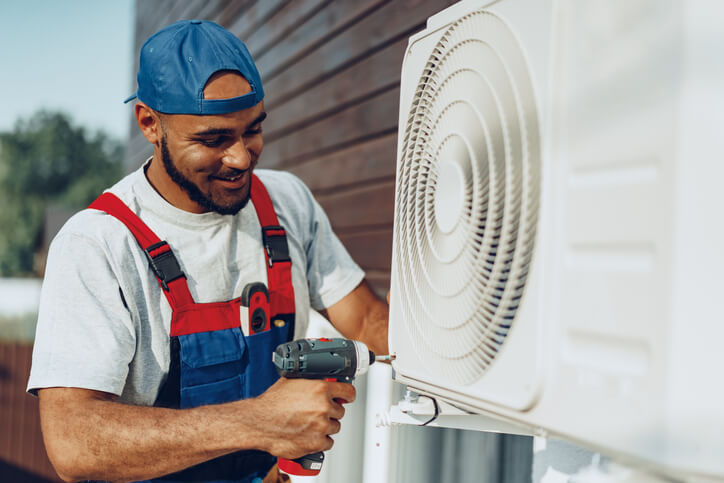
If you’re thinking of starting an HVAC career, there are many tools you’ll need to get acquainted with, as you’ll use them both during your training and throughout your career. In addition to basic hand tools that most tradespeople need to complete basic tasks, such as screwdrivers, power drills, hammers, and pliers, there are several industry-specific tools you’ll use. With the knowledge and skill to use these tools, your work will be done more efficiently. Read on for a brief introduction to some standard HVAC tools you’ll use after training.
Carbon Monoxide Detectors Are Essential for Safety
As an HVAC technician, you’ll come into contact with many different sources of carbon monoxide gas. These include leaking chimneys, back drafting from gas water heaters, wood burners, furnaces, generators, and any poorly maintained combustion device. Inhaling this deadly molecule deprives the body of oxygen, and in the case of carbon monoxide poisoning, you may only notice some mild symptoms like headache, dizziness, or fatigue. Since carbon monoxide gas is undetectable, you’ll need to use detectors. These devices sound an alarm when an unsafe amount of carbon monoxide is detected in the air. They can be life-saving.
Refrigeration Gauges Allow You to Manifold Gas and Liquid Pressure
After HVAC Technician training, you’ll use manifold gauges frequently. In fact, many consider them essential HVAC tools. They measure the pressure of liquids and gasses in a cooling system and are used primarily as a diagnostic tool, alerting you to any problems with the operation of a system. They can also be used as a service tool, releasing moisture, debris, or contaminated refrigerant from a system. Using a manifold gauge, you can add refrigerant to a cooling system. Digital gauges offer more efficiency and accuracy.
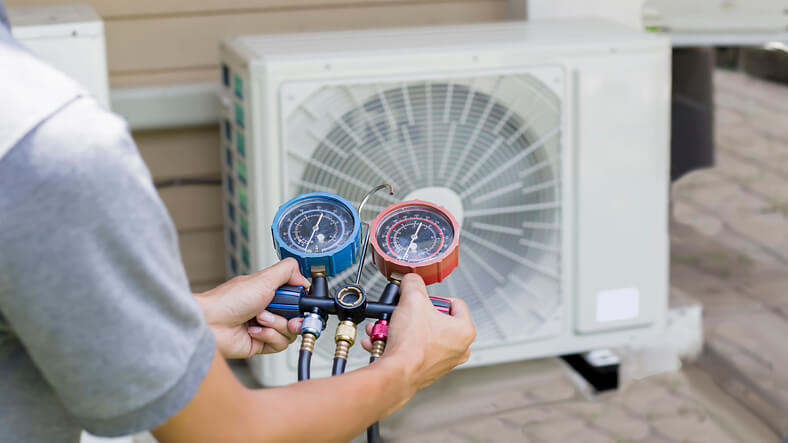
You’ll Use a Multimeter Regularly After HVAC Technician Training
Multimeters are essential tools that you’ll regularly use after completing HVAC courses. They are used for safety reasons to detect electrical current and notify you of the presence of voltage in order to protect you from electrocution. Multimeters also aid in the troubleshooting of electrical components within a cooling system, like switches, wires, and outlets. It’s important that you use a multimeter specifically designed for HVAC technicians with a thermocouple (air temperature sensor) with a 1000-degree range. HVAC multimeters should also have attachments that are compatible with the electrical components of ventilation systems.
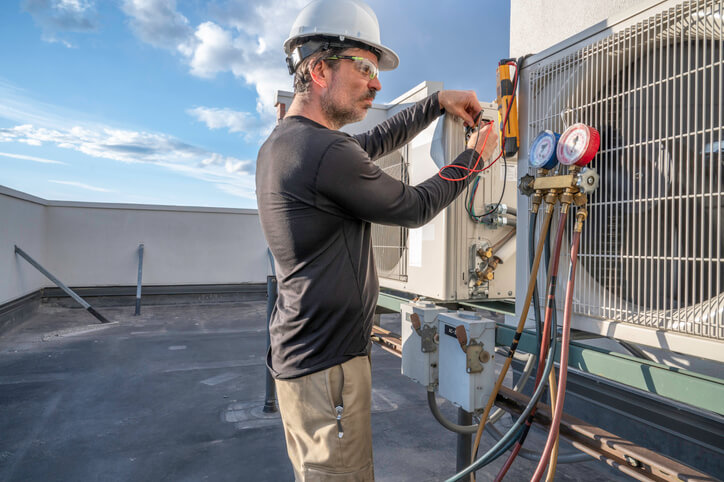
HVAC Software Will Help You Streamline Your Workflow
As an HVAC technician, your success depends greatly on your ability to manage your time, keep track of your invoicing, and maintain good customer relationships. Industry-specific business software can help you greatly improve your efficiency. Software tools that feature drag-and-drop scheduling streamline the invoicing process, and customer relationship management technology are great options you might work within your career.
Our HVAC Technician diploma program is designed to prepare students for the G3 and G2 Gas Technician exam with hands-on training from expert instructors. North American Trade Schools is accredited by the Technical Standards and Safety Authority (TSSA). The TSSA promotes and enforces public safety in Ontario. Our HVAC Technician Diploma Program and all of the career training programs we offer meet the standards set by the TSSA, meaning that you can trust us to provide all the skills needed to become a certified HVAC technician.
Are you ready to attain your HVAC Technician diploma?
Contact NATS to find out how you can get started.
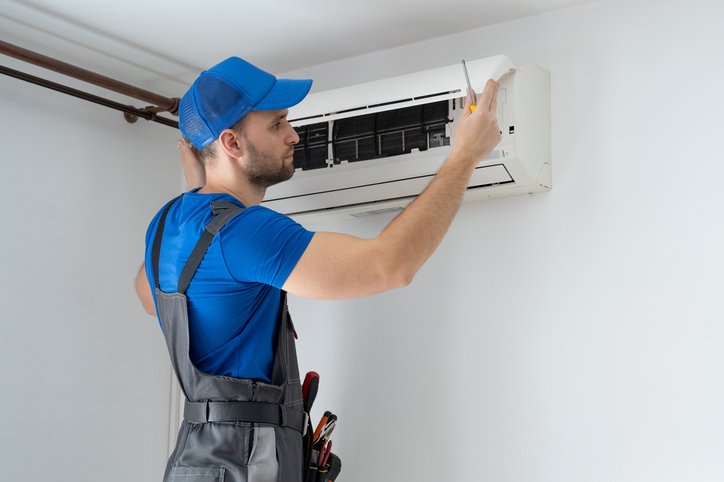
An HVAC Technician is a skilled professional that installs, repairs, and maintains, heating, ventilation, air conditioning, and refrigeration units. If you are considering becoming an HVAC Technician, there are certain safety principles you will need to know and remember. Once you start your career, you will find that you’ll be working with noxious gasses and electrical systems, and as such, you’ll need to remember safety protocols to avoid any harm. Read on for some safety practices you’ll want to remember throughout your training and career.
Wear PPE After HVAC Technician Training
As an HVAC Technician, you are likely to be exposed to noxious fumes, as well as other particles such as dust, debris, and chemicals which may cause harm. It is essential always to wear personal protective equipment (PPE) while you work. For instance, a respirator will help protect you against fumes, and safety goggles can help protect your eyes against any debris or harmful liquids. Other important PPE you may need as an HVAC Technician includes:
- Safety gloves
- A hard hat
- Non-slip shoes
- Earplugs
During your HVAC Technician Diploma program, you will learn the importance of protective gear, including how it should be worn and why it is needed in different scenarios. For example, wearing earplugs when working in a loud environment can help avoid damaging your hearing. Always wearing your safety gear on the job will help prevent you from suffering serious harm.
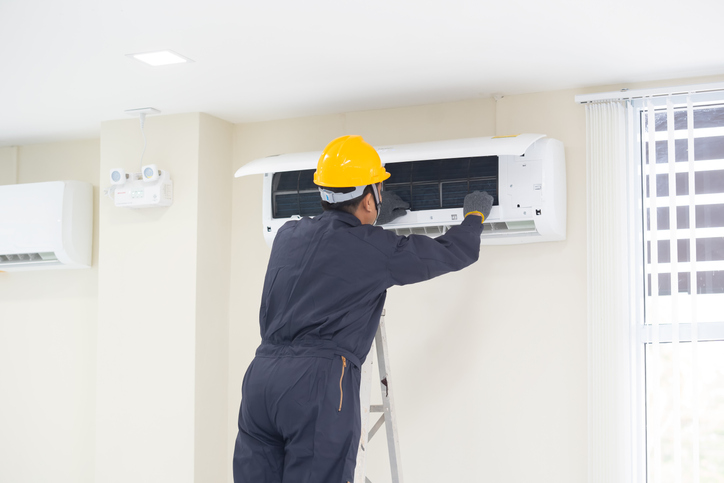
Be Cautious When Handling Chemicals
An important safety practice to always consider while working as an HVAC Technician is to be cautious with chemicals. You will be working with chemicals daily, and some, such as solvents and refrigerants, can be very harmful if not handled correctly. They may cause burns or in some severe cases, poisoning. During HVAC Technician training, you will be taught how to handle these chemicals safely.
Practical examples will be given and overseen by instructors, where you will need to dispose of, replace, and transport chemicals safely. This will be done using the knowledge of rules and regulations you learn during your training. For example, you’ll learn how to remove and store refrigerant chemicals safely.

Turn Off the Electricity While you Work
When working with units that have a water system or have general electrical issues, it is safer to turn off the main circuit breaker before starting work. Water is a conductor of electricity and can cause electrocution. Water leaking onto the unit you are working on may also be damaging to the unit, as it may cause a short circuit. This can be not only damaging for the unit but is a safety and fire hazard, as well. Additionally, it will be essential to analyze a unit before you begin working on it to see if there are any fluid leaks. This will help you better understand if you need to turn off the main circuit breaker.
The HVAC training you receive at NATS will help you identify leaks, teach you how to fix them, and help you understand the safety practices to follow throughout your career.
Are you ready to begin training for your HVAC Technician career?
Contact NATS to learn how you can get started!
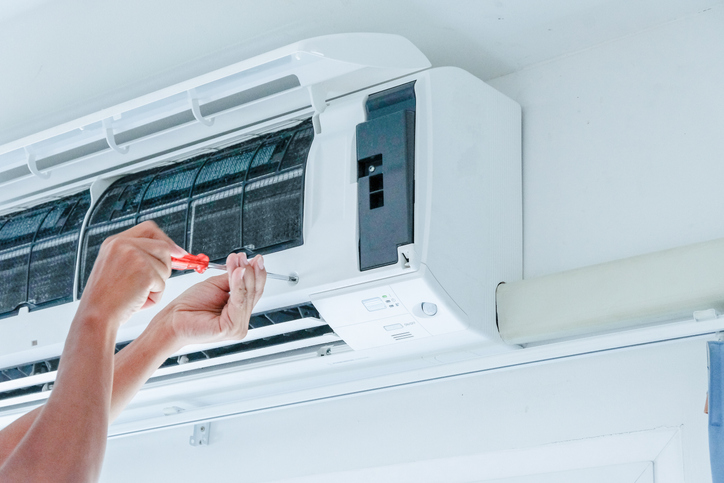
In recent years, we’ve seen record-high temperatures across the globe. Many homeowners are recognizing the importance of good ventilation and cooling units–and that’s where you come in as an aspiring HVAC technician.
HVAC technicians are responsible for the installation, maintenance, and repair of heating, ventilation, and air conditioning systems. Here are a few installation tips to remember when installing HVAC units, and how our HVAC technician program can help you launch a successful career in this industry!
1. Start by Determining Your Heating and Cooling Loads
The heating and cooling load refers to the rate at which heat should be supplied to or removed from a space in order to maintain a particular temperature range. Several factors go into determining this like the location, size, and age of a home. In addition, you’ll need to take into account the materials that were used to make up a home, the number of doors and windows, the amount of direct sunlight, the amount of shade, and whether or not the homeowners have special needs due to allergies and other health conditions.
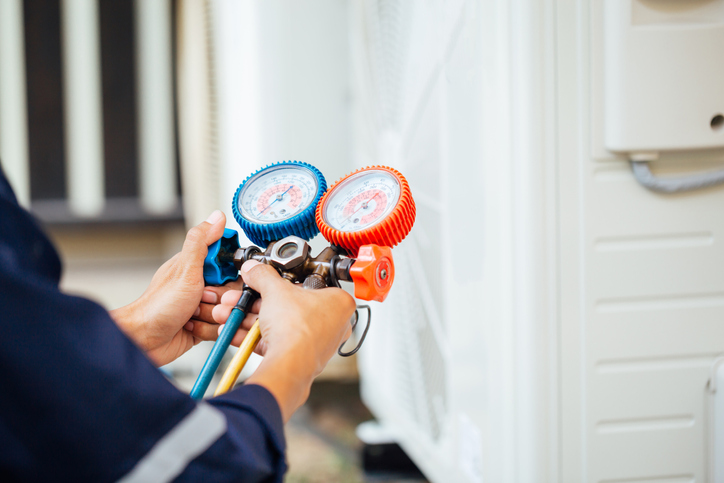
Once you’ve come up with this important information, you can go on to take a look at the ductwork that’s been done and make any needed repairs or replacements. As you’ll learn in HVAC technician training, poor ductwork can cause imbalances and, as a result, block airflow and decrease air quality. To boost your ductwork, you may consider adding insulation that can improve the performance of HVAC systems.
2. Be Sure That You’ve Chosen the Correct Sized Unit
A large unit is not always better. If a system is too large for a homeowner’s space, it actually becomes inefficient. In fact, systems that are too large for a particular space can experience degradation faster, which will affect the longevity and performance of the unit. That being said, a small unit wouldn’t be appropriate for a large space as it will not effectively heat or cool the space.
How can you ensure that you’ve sized the unit correctly? First, determine the square footage of the space. Then, multiply the square footage by 25 BTU (British thermal units), the rough amount of energy it takes to heat or cool one square foot. This will give you your base BTU amount. Finally, take the height of the ceilings into account. If the ceilings are above 8 feet, multiply the base BTU amount by 1.25. This is a very basic calculation that does not take into account the climate, amount of people living in the home, or the number and placement of doors and windows. You’ll learn more about this process in HVAC school.

3. Make it a Habit to Check Your Lines After HVAC Technician Training
Refrigerant lines connect an outdoor air conditioner or heat pump to the indoor evaporator coil. It’s essential to check these lines for leaks. If you find refrigerant lines that are in poor condition, be sure to run high-quality replacement lines in a location that provides easy access. In the HVAC Technician Diploma program at NATS, you’ll learn how to install and maintain HVAC systems and work with tools like metal snips, electric drills, testing devices, and more. Students can write their G3 gas technician exam after the first module and the G2 gas technician exam after graduation.
Interested in our HVAC technician diploma program?
Contact NATS to learn more!
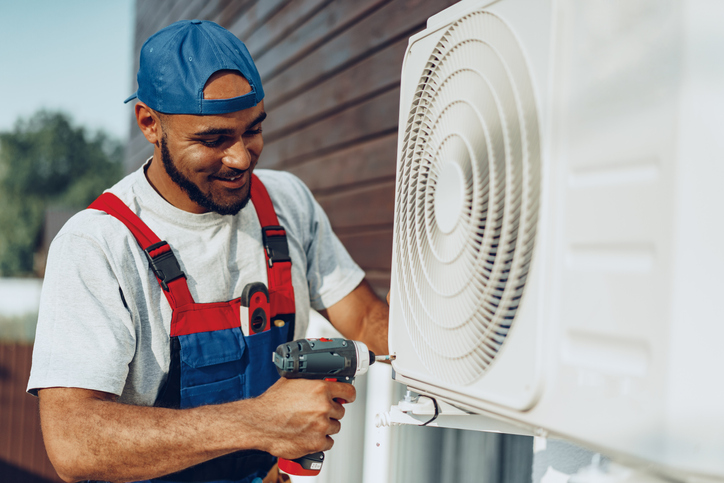
HVAC (Heating, Ventilation and Air Conditioning) systems are great for making life more comfortable. But when they’re not installed properly, they can be dangerous–causing fires, explosions or emitting toxic fumes. If you’re considering a career as an HVAC technician, you’ll be responsible for installing, repairing and maintaining these systems. In order to do so safely, you’ll need to be well versed in industry regulations and practices. When working with systems that utilize natural gas, propane, butane, hydrogen, methane, and mixed gasses, you’ll be adhering to a variety of gas codes or guides that dictate how to safely install and repair these systems based on the type of gas you’re working with.
At North American Trade Schools (NATS), you’ll become familiar with relevant gas codes–in addition to building other practical skills and knowledge for a career as an HVAC technician. Below, learn more about what gas codes are and why your knowledge of them will be important after completing your HVAC training at the North American Trade Schools.
What are Gas Codes?
Gas codes are used by technicians and inspectors to guide the safe installation of appliances and piping. As an HVAC technician, you’ll need to ensure that you’re familiar with the codes in the municipality where you’re working before installing, repairing or inspecting a fuel system. There are several key codes to follow when it comes to working with fuel systems. For one, you’ll learn about the International Fuel Gas Codebook (IFGC), a widely used guide agreed upon by engineers but not to be confused with manufacturer codes. Manufacturer codes supersede the IFGC when the two conflict, as all products from manufacturers, are tested by regulatory agencies before approval.
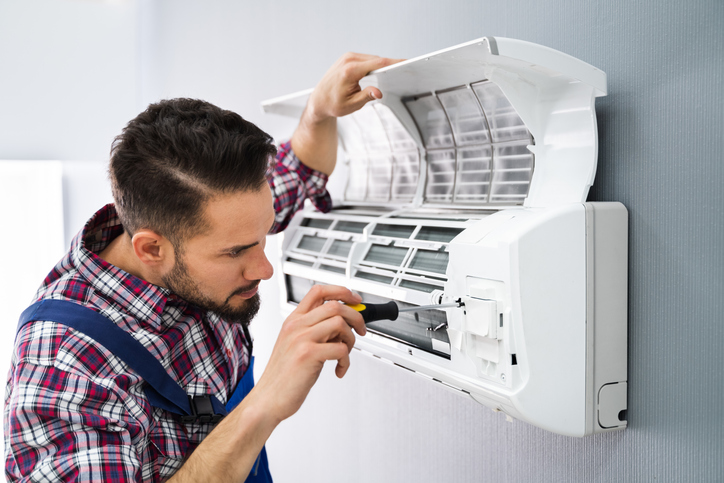
What’s in the International Fuel Gas Codebook?
The International Fuel Gas Codebook contains eight chapters of important safety information. In your HVAC technician courses, you’ll receive guidance on how to interpret and apply the information in the IFGC to your work on site. The first chapter deals with administration; defining what is covered under each code and the provisions put in place for departments of inspection. The second chapter covers important definitions. Chapter three outlines general safety regulations such as hazardous locations for appliances, combustion, dilution air, and ventilation requirements. The following chapters outline best practices for gas piping installations, chimneys and vents, specific appliances, gaseous hydrogen systems and more. Equipped with the knowledge of the IFGC after your training, you’ll be prepared to safely and knowledgeably perform work on any HVAC system.

When Can You Expect to Use Gas Codes as an HVAC Technician?
When you begin your career in HVAC, you’ll use the IFGC and other regional and manufacturer gas codes to guide your approach to installing, maintaining, and repairing gas systems. Throughout your career, you’ll want to consistently refresh your knowledge of gas codes, keeping updated on any regulatory changes.
If you’re seeking a career as an HVAC technician, it’s important to prepare for the workforce with hands-on instruction and gain practical experience using state-of-the-art equipment. At NATS, our HVAC Technician Diploma Program offers a high level of support for students, and you can expect to learn everything you need to know about gas codes and safety regulations from our experienced instructors.
Ready to start HVAC school?
Contact NATS today!
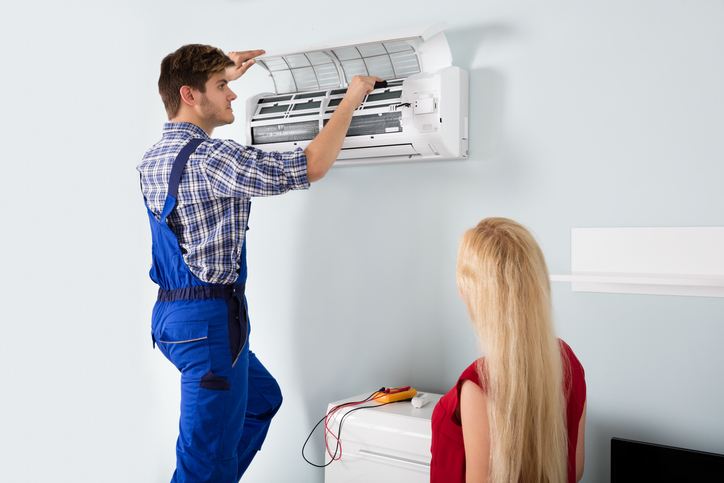
Heating, ventilation and air conditioning is an industry that is gaining popularity. Almost every house today will not only have a central heating system but also a system to control the air quality, humidity and ventilation of a space.
While working in HVAC, it is essential to have good communication skills, especially when engaging with new and existing customers. When it comes to HVAC systems and businesses, clients have many options to choose from. Good communication and customer service are something that all clients care about, so it’s important to offer every customer the best possible experience to secure their business. Read on for some top communications tips when dealing with clients!
1. Answering the Phone Quickly Will Look Professional
Having an open line of communication for your clients to reach you is essential for the steady flow of business. Many customers will call you to get an instant quote on what services you offer, your next availability to service or install an HVAC system, and your prices. In that case, companies need to have someone ready to answer the phone and respond to those queries.
After completing HVAC technician courses, you’ll learn that having reliable customer service is what can truly differentiate your business from others. For example, a client’s A/C may break down in the summer and need to be fixed the next business day. By acting fast when your clients call you about a problem, you can be sure to secure a loyal customer for the future.

2. Make Sure Customers Understand What You Are Saying
Have you ever been somewhere to get a service and the employee keeps using technical terms that you don’t know? This is an example of poor communication skills which can leave the customer feeling lost and confused.
During HVAC school you will receive advanced training in technical procedures relating to gas and propane heating systems and ventilation and air cooling equipment. You will also be taught gas codes & regulations for residential and commercial environments. With this knowledge in the bag, it’ll be your job to break down any problems or procedures to clients in clear and simple terms. That way, you can clarify what services you’ll be performing and leave clients feeling confident in your role as a technician.
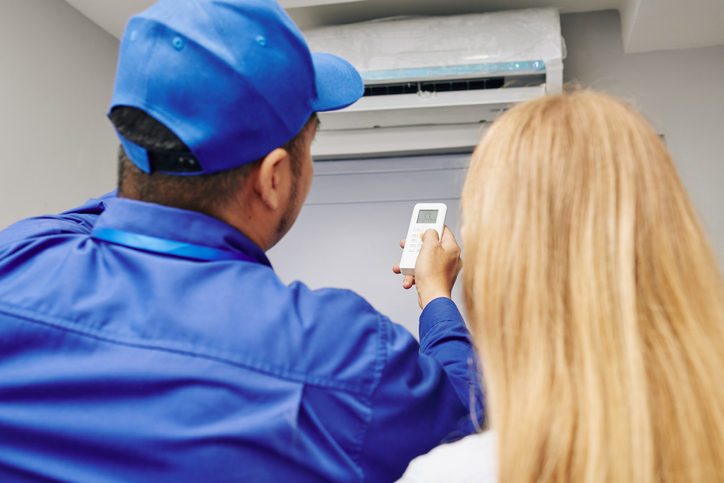
3. Focus on Earning Customer Trust After HVAC School
Loyal customers are the most important attributes of any successful business–and HVAC companies are no different. You may be dealing with clients who are stressed or impatient about getting a service done. In these situations, it’s important to listen to the customer’s concerns and offer them the best solution possible.
In some cases, there may be bigger problems with an HVAC system that will take time to be fixed or replaced. In this case, it is important to be upfront with your clients and give them an honest estimation of your services. When delays or issues arise, inform your clients immediately so they are not left in the lurch. With clear and honest communication, your business can enjoy a loyal and satisfied client base.
Are you looking to earn your HVAC diploma?
Check out NATS today!
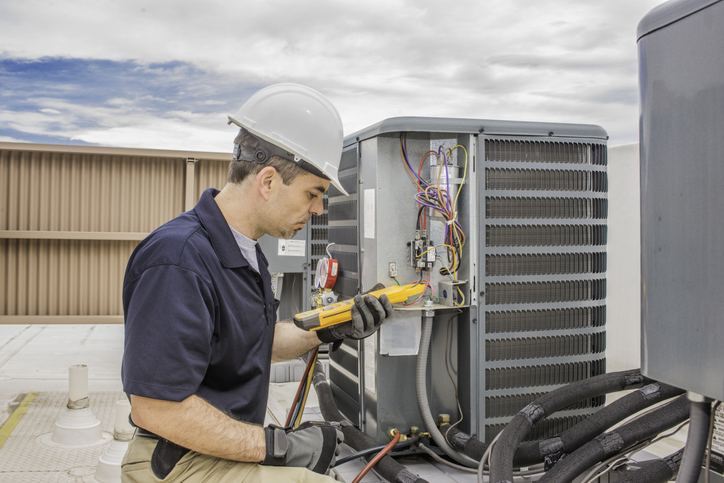
If you’re pursuing an HVAC career, one of your main responsibilities will be to service and repair air conditioning units. Along with other routine maintenance tasks, you’ll need to perform refrigerant pressure checks. Refrigerants are chemical compounds which absorb heat from the surrounding environment. During a refrigerant cycle, refrigerants will repeatedly change from a fluid to a gaseous state depending on their temperature, moving through the cycle’s components in order to reroute heat to other areas. Refrigerants are used mainly in air-conditioning systems, heat pumps, refrigerators, and freezers.
At NATS, you’ll receive hands-on training to pursue an HVAC technician apprenticeship, learning how to install and maintain gas and propane heating systems, air conditioning units, and ventilation equipment for both commercial and residential environments. Below, get a head start on your training by discovering a few key things to note about checking refrigerant pressure.
Checking Refrigerant Pressure Requires an Understanding of the Refrigerant Cycle
As an HVAC technician, understanding the ins and outs of refrigerant pressure won’t be possible without basic knowledge of refrigerant cycles. Refrigerant cycles consist of four basic components: the compressor, condenser, expansion device, and evaporator. The compressor is what uses the most power in an HVAC system–responsible for compressing gaseous refrigerant in a cooler state to a high-pressure, high temperature vapour. From here, the refrigerant is cooled by the compressor, a coil filled with hot refrigerant which wraps around the system to diffuse heat. Next, the expansion device works to reduce the refrigerant pressure quickly to prepare it for evaporation. Evaporation will occur in the evaporator, which boils the refrigerant. Through these exchanges in energy and changes in matter, refrigerant regulates the temperature of a system.
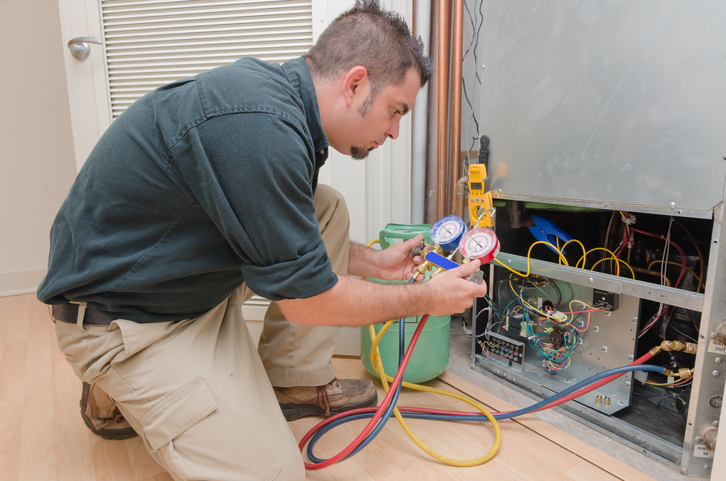
What Condensing Pressure of a Refrigerant Means for an HVAC Technician
When refrigerant changes from a gas to a liquid within a cycle, this creates what’s known as condensing pressure; a form of condensation. This occurs when refrigerant moves through the condenser, releasing heat as its temperature drops to the temperature of condensation. The condenser is a cooling system composed of tubes which expand over a large surface area to remove the greatest possible amount of heat. The condensing pressure, which results from the release of heat and sudden drop in temperature, can be read by a pressure gauge. While this gauge can be placed anywhere between the metering device and compressor, it should be placed as close as possible to the condenser in order to obtain an accurate value. During your HVAC technician career, it’s important to remember that a higher-than-normal pressure could indicate problems with the condenser coil, broken or faulty fans, or even leaking refrigerant.
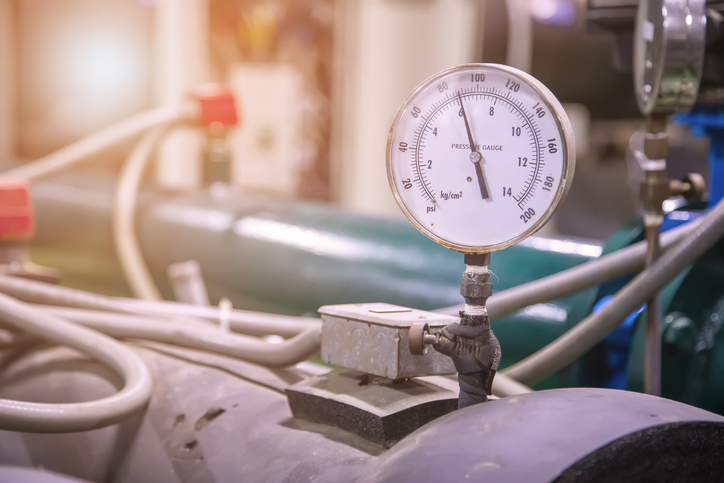
Evaporating Pressure is the Opposite of Condensing Pressure
When you enrol in HVAC technician courses, you’ll also become familiar with refrigerant’s evaporating pressure. A refrigerant’s evaporating pressure is the opposite of condensing pressure. During this phase, the refrigerant chemical compound is vapourized, changing from a liquid to a gaseous state and absorbing heat from its surroundings. When the refrigerant moves through the suction line and evaporator, the valve and line pressure drop. As with condensing pressure, the evaporating pressure can be read using a pressure gauge that’s situated and connected anywhere between the compressor and metering device. A refrigerant’s chemical compound enters the evaporator as a low pressure, cold liquid, but as it absorbs heat, it begins to boil and evaporate.
Are you interested in HVAC school?
Contact NATS for more information about our training programs!
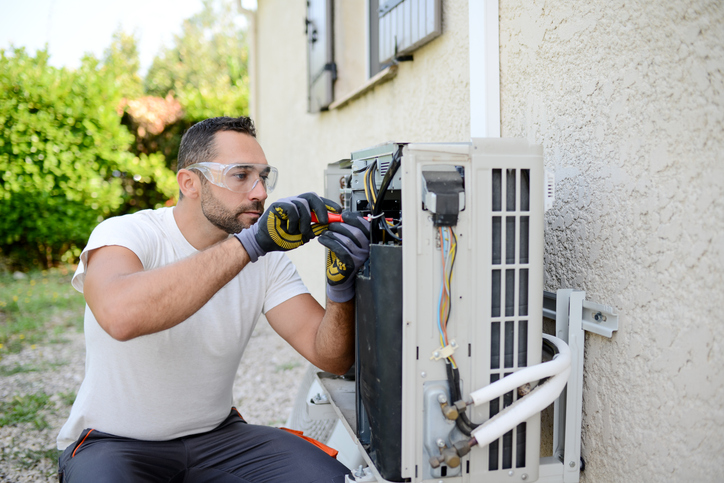
For an aspiring technician looking to work in the HVAC industry, it’s important to know the common issues your customers may encounter that’ll require your expertise in repairing and resolving those issues. HVAC challenges can sometimes have simple solutions when it comes to repairs, but if not handled immediately and properly, they can cause further damages as well as more time and money to fix.
At NATS, you’ll gain hands-on training through our HVAC pre-apprenticeship program. You’ll learn how to install and maintain gas and propane heating systems, as well as ventilation and air cooling equipment for both residential and commercial environments. Your training will prove to be valuable to customers as you work on resolving common HVAC challenges.
Read on to find out the three common challenges you’ll face in your career!
1. As an HVAC Technician, You May Encounter Pilot or Ignition Issues
One of the common HVAC challenges you’ll encounter might have to do with the gas furnace’s pilot or ignition unit. When this issue is present, it prevents the furnace from dispersing any sort of heat around a unit or home, which can be a big problem in extreme cold weather conditions.
Ignition problems for the furnace can be caused by dirty pilots or flame sensors. As a professional HVAC technician, you’ll have to examine these furnace components, as their malfunctioning can cause short-cycling, a pilot outage, delayed ignition of the furnace burners or an entire furnace lockout. You’ll have to assess whether the furnace components have experienced wear and tear over time and need replacement, or whether the issue is related to a gas supply problem.
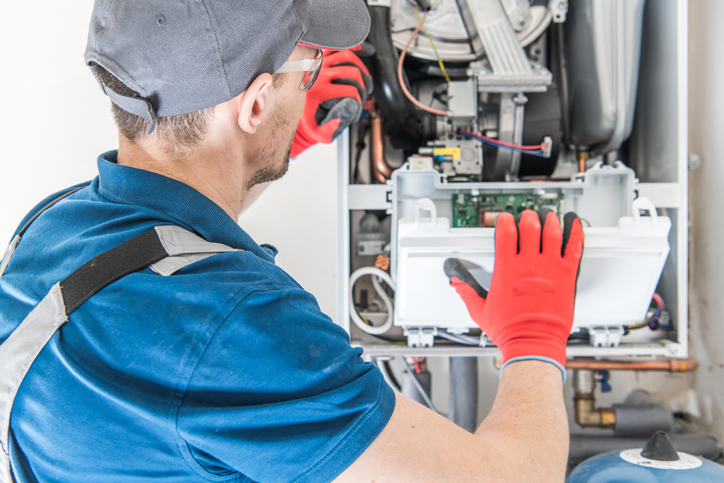
2. Dirty Filters Are Most Common
After you complete your training from an HVAC school, you may get a call from customers regarding poor airflow circulation around their homes or offices. This is most likely related to dirty air filters. Dirty air filters are the most common HVAC challenges you’ll face during your career. However, they’re fairly simple to handle and resolve.
A dirty filter will reduce the lifespan of a customer’s furnace because it places more pressure on the furnace to circulate air. It can also cause it to repeatedly overheat and shut off. You’ll have to replace the dirty filter with a new recommended filter based on its Minimum Efficiency Reporting Value (MERV) rating. The higher the MERV rating of the filter, the better it is for air quality.
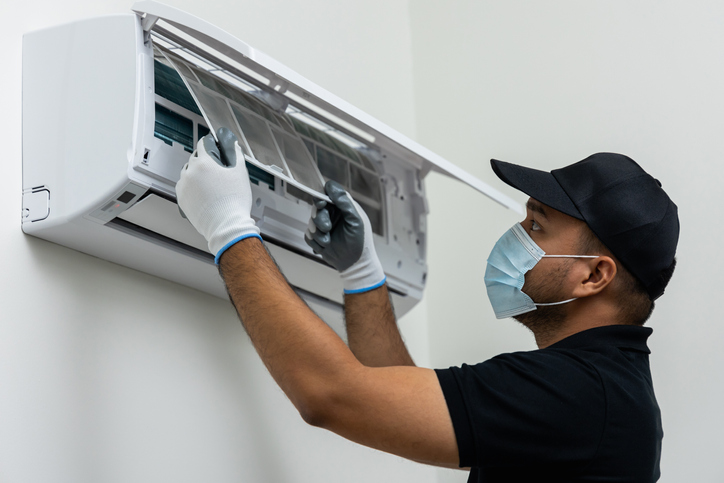
2. Wear and Tear of Heating System Components
Another common HVAC challenge you may come across during your career is complaints about the heating system’s ability to generate heat for an entire office or home. This can be the result of the wear and tear of some components in the heating system. You’ll have to check the heating system for the condition of its bearing and belts. You’ll probably have to check if the belts are stretched or worn out, and if they require replacing. Additionally, the heating system’s motors and bearings might not be well lubricated, and in that case, you’ll have to oil them to allow them to run smoothly.
Are you interested in HVAC technician courses?
Contact NATS for more information about our training programs!





